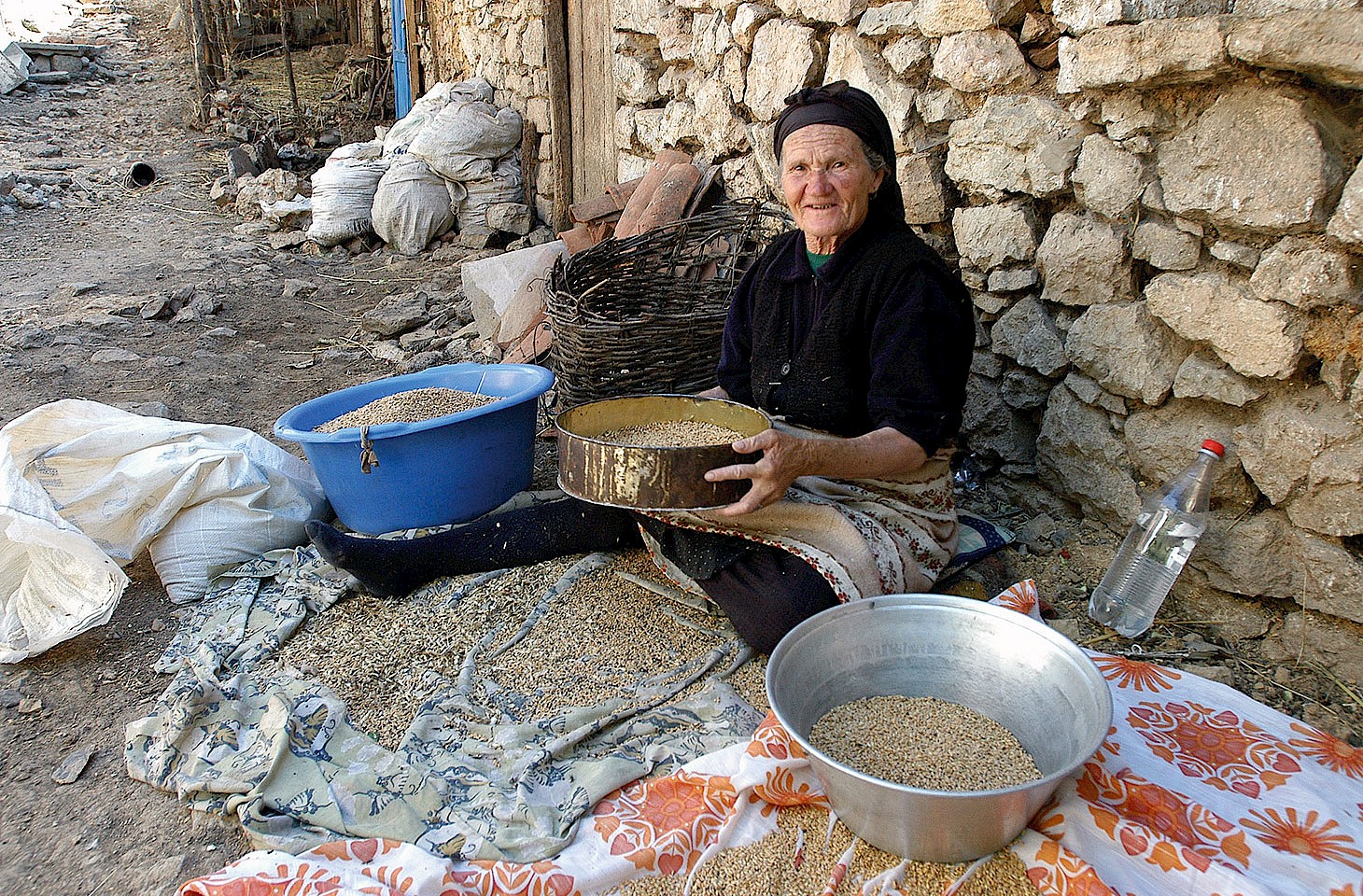Dear fellow travellers
It takes less than four hours to cross Macedonia by train. It is just 250 km from the border with Serbia at Tabanovce to the Greek frontier at Gevgelija. Of course Macedonia deserves more than merely four hours, but that short train journey affords a few insights into one of Europe's least known countries. Macedonia is a tad larger than Wales, and yet encompasses a considerable variety of landscapes and peoples - it is not for nothing that chefs across Europe take the very name Macedonia as a byword for variety, viz. macédoine de légumes in France or macedonia de frutas in Spain.
The main north-south rail route across the country is used by both the Olympic and the Hellas Express. Both trains link Serbia with Greece. The Hellas is one of those old style trains that really should have featured in a film or two. Its multicoloured rake of carriages is as varied as Macedonia itself. Depending on the day of the week, the Hellas Express may even convey carriages from as far afield as Moscow and Kyiv.
Virtually the entire run south from Tabanovce through Macedonia follows the valley of the River Vardar and its tributaries. The Vardar defines Macedonia and it is pre-eminently a Macedonian river. It rises in the hills east of the border with Albania, and then makes a great loop across northern Macedonia, passing through the capital Skopje before turning south towards Greece. At that border, the name of the river changes to Axios. This is one name over which Greece and Macedonia do not squabble.
That four hour train journey through Macedonia affords glimpses of distant mountains and close-up views of seductively beautiful vineyards as well as fields of sunflowers, tobacco and grain crops. Highlight of the run is the remarkable gorge through which the Vardar cuts near Demir Kapija - the name is derived from Turkish and means 'iron gate', a hint at the former importance of the great limestone bluffs on either side of the river in securing the defence of the settlements to the north. "This could so easily have been one of Europe's great thoroughfares," explains a man on the train, going on to recount how the route cut by the Vardar through the hills could have been as important to trade as the Rhine valley through the hills downstream from Mainz or the Danube valley through the Kazan gorge - an area often also referred to as the iron gates.
That the Vardar has never made it into the super league of European waterways has probably been all to the benefit of the little communities at which the train pauses on its route south. Even the so-called express train never hurries through Macedonia. But our fellow traveller on the train is right in a way. At various times over the centuries, engineers have speculated that if the headwaters of the South Morava and the Vardar could be linked by a canal, then barges could travel from the Danube to the Aegean. It is a pipe dream that has never come to pass, but the idea appeals to Macedonians, even if they admit how utterly impracticable it is. They like the notion of their landlocked and too often by-passed country being on one of Europe's great water routes.
Last stop on the train before the Greek border is Gevgelija. It is a little place that boasts Greek and Roman ruins, and on a low hill above the town there is a monument to the partisans. It is a reminder that folk have always tussled for control of Macedonia.
Nicky Gardner and Susanne Kries
(editors, hidden europe magazine)


